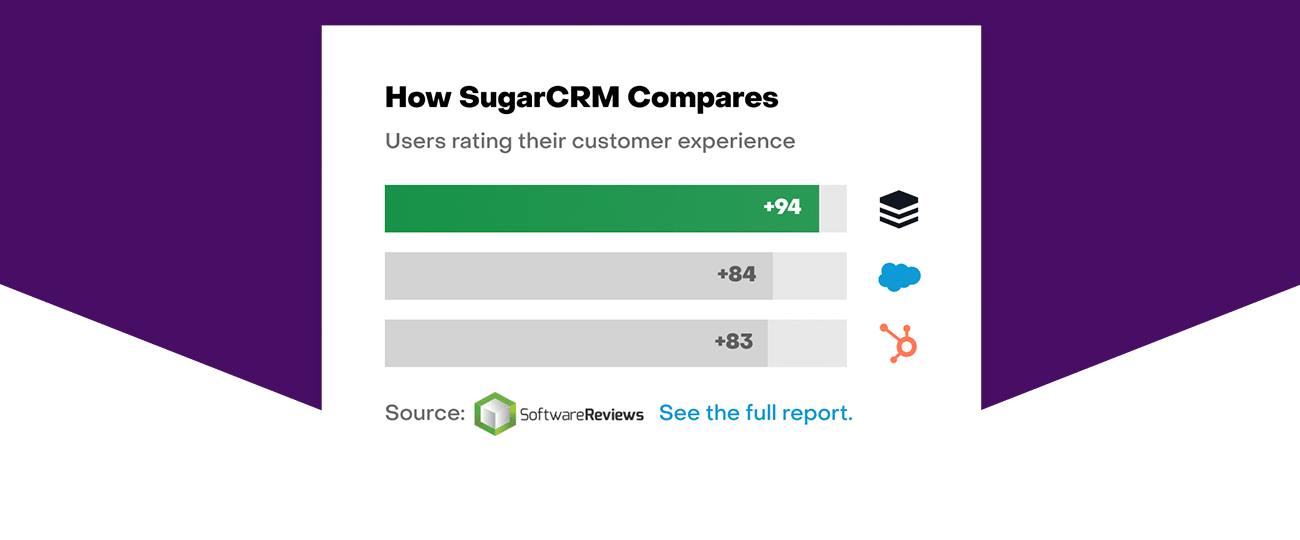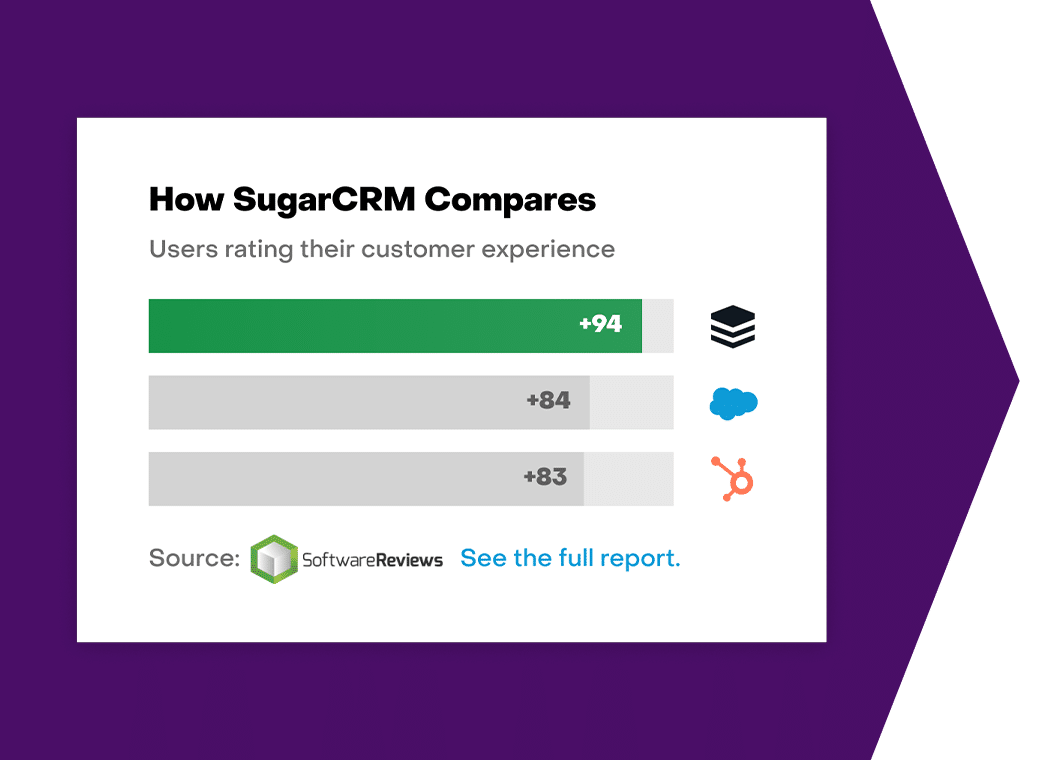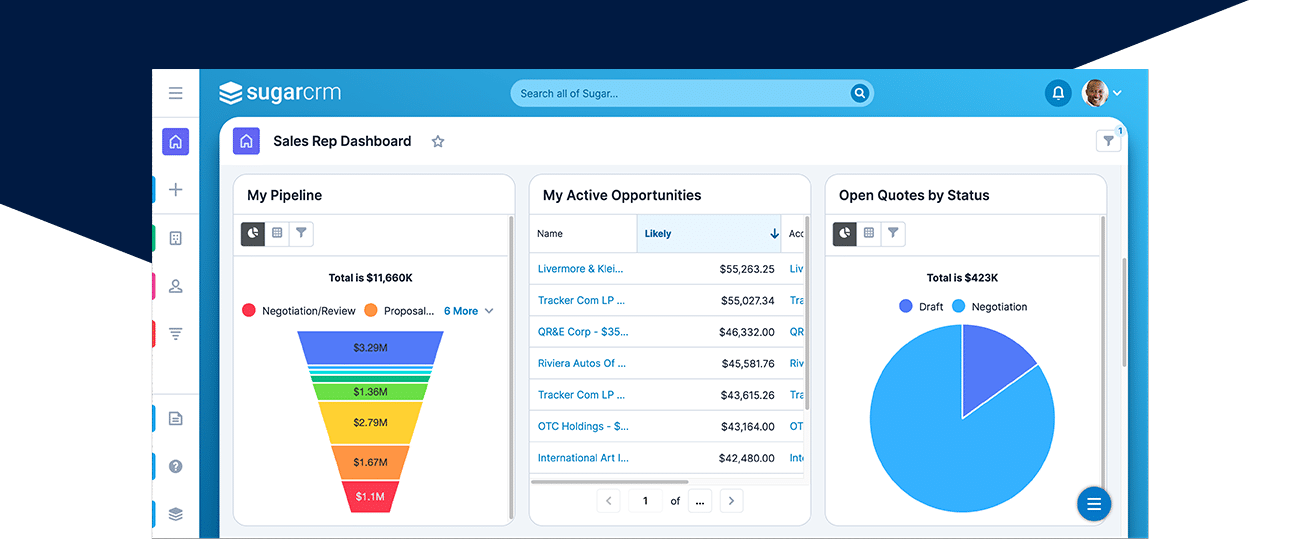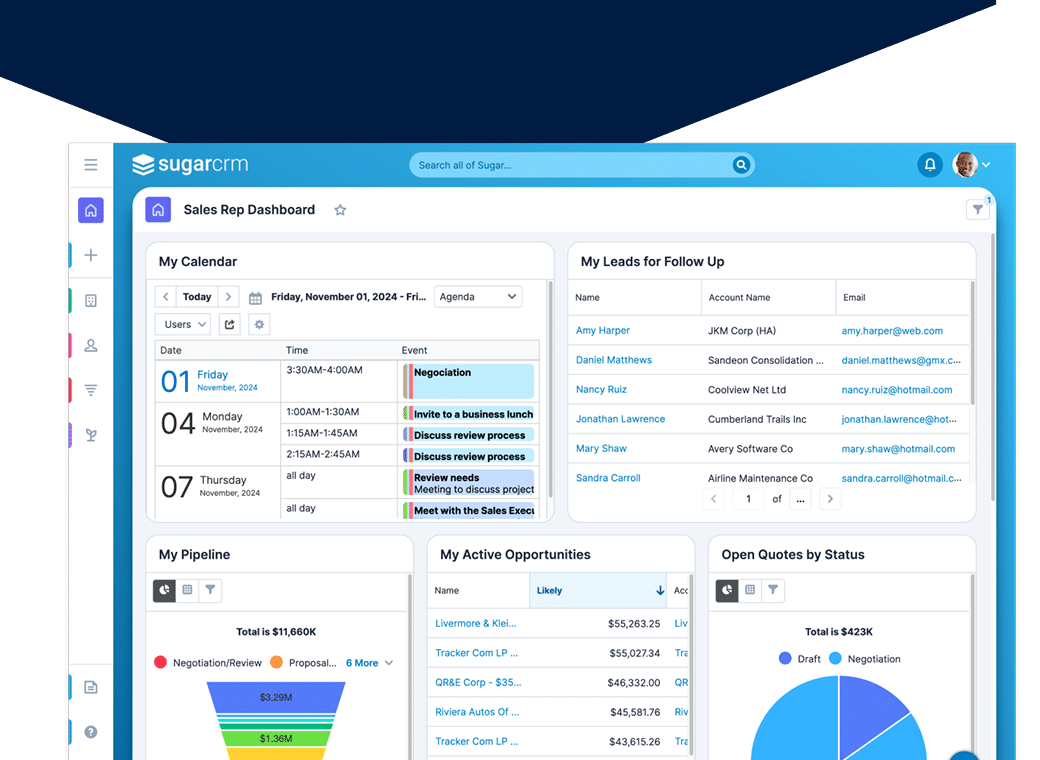4 Ways CRM Software Is Helping Manufacturers Create Operational Resilience
The manufacturing industry has suffered greatly from the aftermath of COVID-19 and to this day, tries to find novel methods to boost efficiency and secure themselves in face of market challenges such as global supply-chain issues, operational vulnerabilities, and more. But ultimately, these challenges served as a catalyst for change. Many manufacturing enterprises turned their attention towards technology to help aid this change and became growth leaders.
This McKinsey’s analysis of more than 5,000 public companies shows that growth champions create 80% more shareholder value than their peers over a ten-year period.
As companies build up digital offerings and adapt human labor to new working conditions, growth leaders emphasize building flexibility, resilience, and latency into their supply chain operations. Organizations are becoming future-ready by ensuring their company’s people, processes, data, and technology are aligned on all fronts to make sure they can cut reaction time in half come next disruptions.
Leading industry experts are now seeing four key trends that are keeping manufacturers awake at night that must be addressed for organizations to successfully come to speed with new customer and market needs:
- Embracing digital transformation
- Creating sustainability and stability for their customer base
- Improving customer experience
- Ensuring supply chain resilience and robustness
What we'll Cover:
1. Embracing Digital Transformation
It’s easy to notice a trend in all industries, not only in manufacturing: the organizations that managed these challenges more seamlessly were the ones that had already embraced emerging technologies, such Artificial Intelligence, Machine Learning (AI/ML), and generative AI capabilities. According to McKinsey, executives who adopt more than 70% of these tech growth strategies manage to grow their top line twice as fast as their peers.
AI, ML, and generative AI technologies are infused in multiple solutions, ranging from marketing automation, sales automation and support solutions. With similar capabilities embedded into their CRMs, manufacturers can increase performance in multiple areas:
- Enhance sales team productivity with generative AI’s help to build captivating emails and sales copy, get valuable insights to customer details and generate ready-made call scripts to boost success chances, and generate personalized proposals.
- Quickly find answers and case histories with a click to get full access to customer history and ticket summaries. With the help of gen AI technologies embedded into customer service solutions, you can generate step-by-step guides for onboarding or assistance.
- Elevate marketing efforts in highly competitive industries such as manufacturing with the help of generative AI features infused into CRM and marketing automation solutions. Gen AI can assist marketers in creating impactful campaigns, blogs, and emails that connect with customers effortlessly, automatic copy translations to increase localization effort success and precisely segment their audience for targeted campaigns.
Besides, with the help of AI features infused into CRM solutions, manufacturing enterprises can gain visibility into their key business drivers and build stronger relationships with customers. Being able to use your CRM to navigate customer changes and intelligent sales forecasting technology for revenue and resource planning, is imperative to manage turbulent markets and make smart decisions informed by objective data and analytics.
Predictive analytics and artificial intelligence can give manufacturing organizations a kick in terms of sales, too. These technologies give manufacturing leaders the ability to understand when and where to introduce additional processes, resources, tools, and strategies that will impact the entire organization. Companies should invest in long-term solutions to increase data quality, customer retention, and operational efficiency to operate as seamlessly as possible. This is essential as organizations reevaluate their forecasting and planning models as they start to create future sales plans to reflect modern customer needs.
2. Sustainability
In the recent years, we have noticed a myriad of changes across all industries, but especially in manufacturing. Currently, B2B enterprises are navigating a multitude of changes spurred by the global events and dynamics including restructuring efforts and the facilitation of remote workforces. As a result, we have witnessed many manufacturers aiming to increase the stability and sustainability of both their supply chains and manufacturing processes.
Consumers have shown different shopping and purchasing habits, prompting organizations to leverage their CRM systems for crafting more sustainable engagement strategies with both prospects and customers. Sales professionals and businesses have demonstrated remarkable resilience, innovating new methods to engage buyers and adapt operations to meet revenue objectives. Within volatile economic landscapes, predicting customer needs has become increasingly critical. For example, sales teams can harness the power of their CRM to gain deeper insights into their customers and prospects through CRM data. Larger volumes of data allow for more informed decision-making. This strategic approach empowers manufacturers to prioritize long-term customer relationships over short-term gains, that create sustainable and dependable revenue streams.
3. Customer Experience
In changing global dynamics, customer relationships shift. The relaionship between manufacturers and customers is also different. In this scenario, CRM tools can prove themselves a great asset. These solutions allow manufacturers to leverage intelligent forecasting for improving customer experience by uncovering crucial data insights to reveal the right combination of tactics and technology needed to satisfy modern customers. This empowers companies to deploy time, energy, and resources at the right time and in the right places.
For manufacturing, the ideal CRM needs to meet certain demandas. It must be able to go beyond basic functions such as customer interaction management. Robust CRMs built with manufactruing enterpises in mind enable manufacturers to adapt to changing markets and mitigate market pressures. They include all applications, tools, and integrations necessary for manufacturers to manage their customer touchpoints while providing real-time customer data so sales reps can gauge their pipeline and provide check-ins and additional resources to prospects at the appropriate times.
With the right CRM, manufacturers can ensure that customer experience is focusing on customers getting the experience and relationship they deserve from their company. CRMs can help organizations to unify internal teams via improved data analysis and strategy, increased customer segmentation and personalization, and escalated relationship management across the customer lifecycle.
4. Supply Chain Resilience and Robustness
The manufacturing industry is always evolving and adapting to shifting customer needs and markets. Manufacturing companies must understand that dated sales playbook may no longer fit today’s dynamics. To make business operations more resilient, enterprises are investing in intelligent software and adopting an agile mindset to find logical and efficient ways to combine technology and human labor.
In manufactruing, the past four years have exposed major vulnerabilities in global supply chains. According to McKinsey & Company, supply-chain disruptions cost the average organization 45% of one year’s profits over the course of a decade, which means manufacturers need to quickly adapt and change the way they carry out their operations.
Manufacturers governed by a growth mindset need to look at their pipeline not only now but also several quarters into the future to identify how to deploy time, energy, and resources in response to turbulent global conditions. Leaders need to dig into historical data and AI-rendered future projections to pinpoint the next steps so sales teams can crush (and exceed) their targets. A CRM tool that helps you manage can take sales performance from good to great to flawless.
When manufacturing organizations have real-time visibility into their sales plans and performance, they can keep a stable or growing revenue stream in a complex, uncertain, and fast-changing environment.
Robust CRM Solutions: The Golden Ticket to Navigating Volatile Markets
The pace of change in the manufacturing industry is as fast as ever, pushing manufacturers to completely rethink and adapt their operational processes.
Access to reliable data gives organizations better accuracy in their planning processes. It sets the stage for sustainable revenue growth because companies can now lay a solid foundation for recovery with their plans and processes. Strategic investments in technology enable manufacturers to increase operational visibility, reduce costs, expedite production times, and deliver exceptional customer support.
By using a CRM platform, you can pivot and change strategy with minimal disruption and even capitalize on market opportunities. Instead of playing catch up when markets change (reactive), forward-thinking manufacturers can use intelligent software to do the manual work leaving leaders to refocus their energy on long-term performance and solutions (proactive).
Want to learn more ways a CRM solution can help you find new ways to connect with customers and adapt sales plans to new growth targets?
Watch our Data Mastery Best Practices: How to Win Sales with Analytics webinar and learn how master data management, data lakes, and data warehouses are used by manufacturers to connect the multitude of manufacturing and enterprise systems with CRM data to identify new sales opportunities and grow share of wallet at key accounts.





